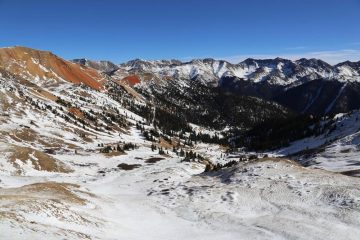Earth Sciences (also referred to as Geosciences), which deals with basic issues surrounding our planet, plays a vital role in the area of energy and raw materials supply.
Earth Sciences comprises subjects such as geology, geography, geological informatics, paleontology, mineralogy, petrography, crystallography, geophysics, geodesy, glaciology, cartography, photogrammetry, meteorology and seismology, early-warning systems, earthquake research and polar research.

In a new study, a team of researchers at Colorado State University found that snow persistence — the amount of time snow remains on the ground — can be used…

Over the last 5000 years, Mount Taranaki volcano, located in the westernmost part of New Zealand's North Island, produced at least 16 Plinian-scale explosive…

Sandy deserts aren't smooth. Like water surfaces, they are decorated by tiny surface ripples and much larger waves, called dunes, excited by turbulent winds….

Earth‘s magnetic field serves as a shield against hazardous radiation from space, especially the Sun’s charged particle flux. Since 1840, the year systematic…

The metropolitan area of Istanbul with around 15 million inhabitants is considered to be particularly earthquake-prone. In order to be able to assess the risk…

Buried in a meadow, hidden in a barn and anchored at the bottom of the Mediterranean: 600 sensors placed on and around the Alps constitute the largest academic…